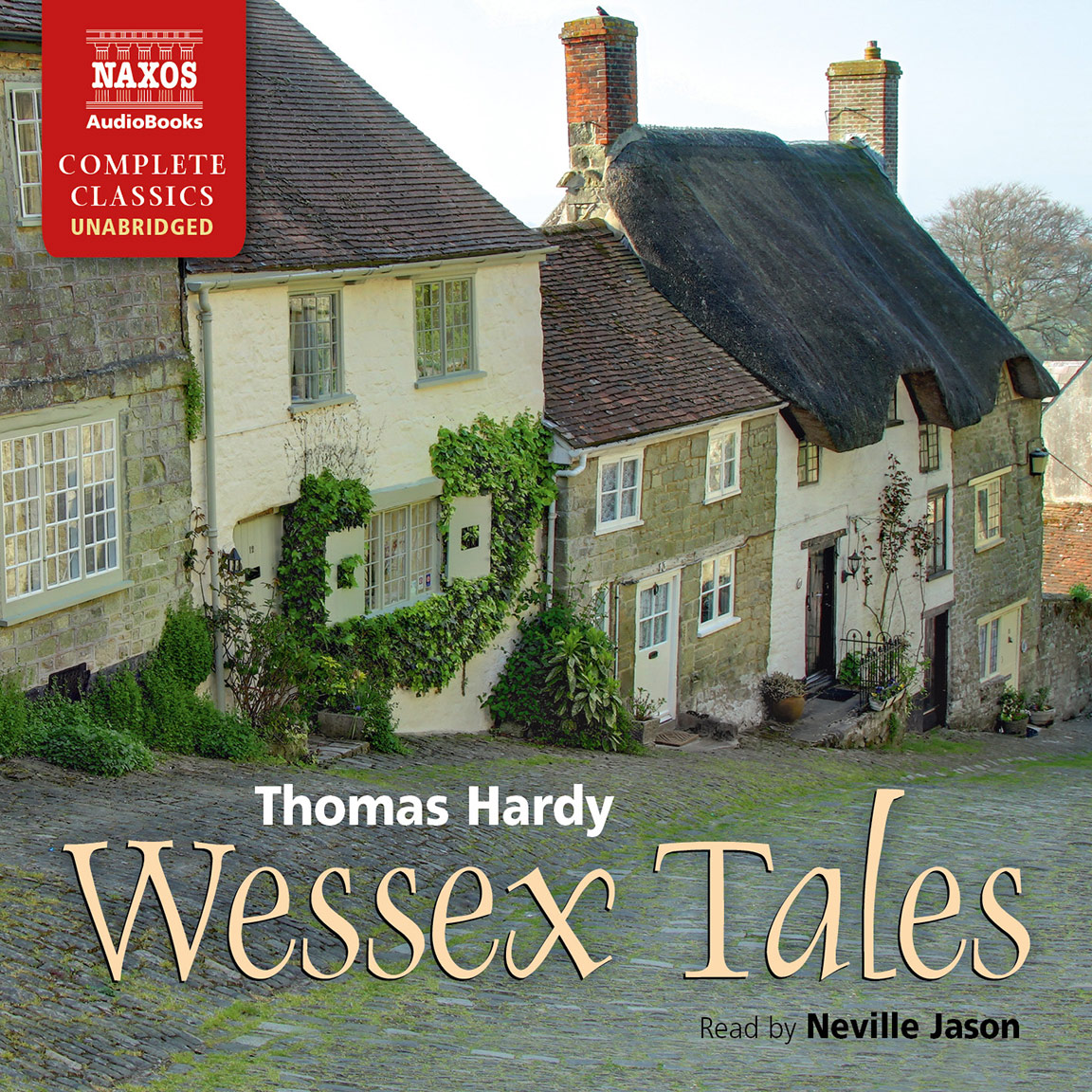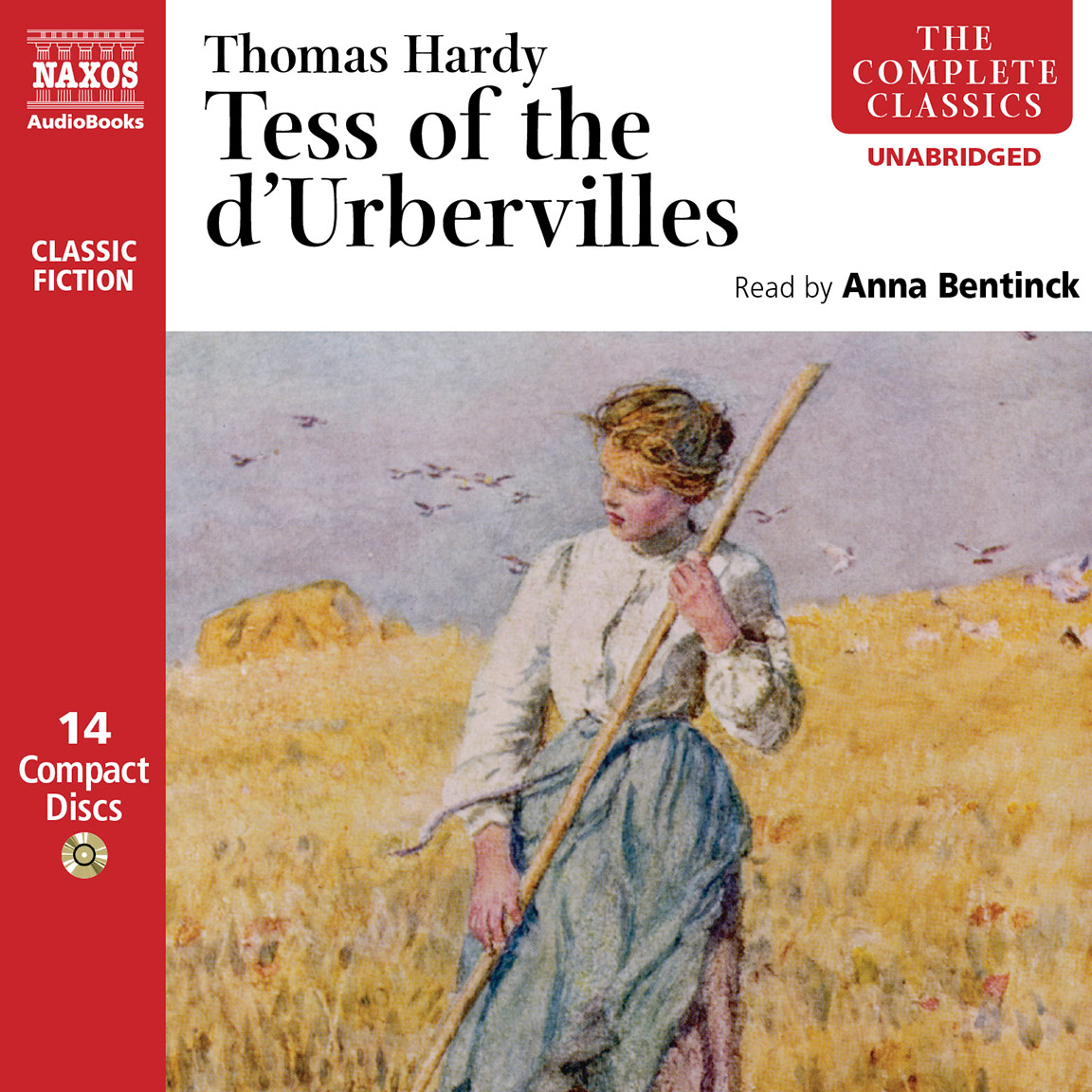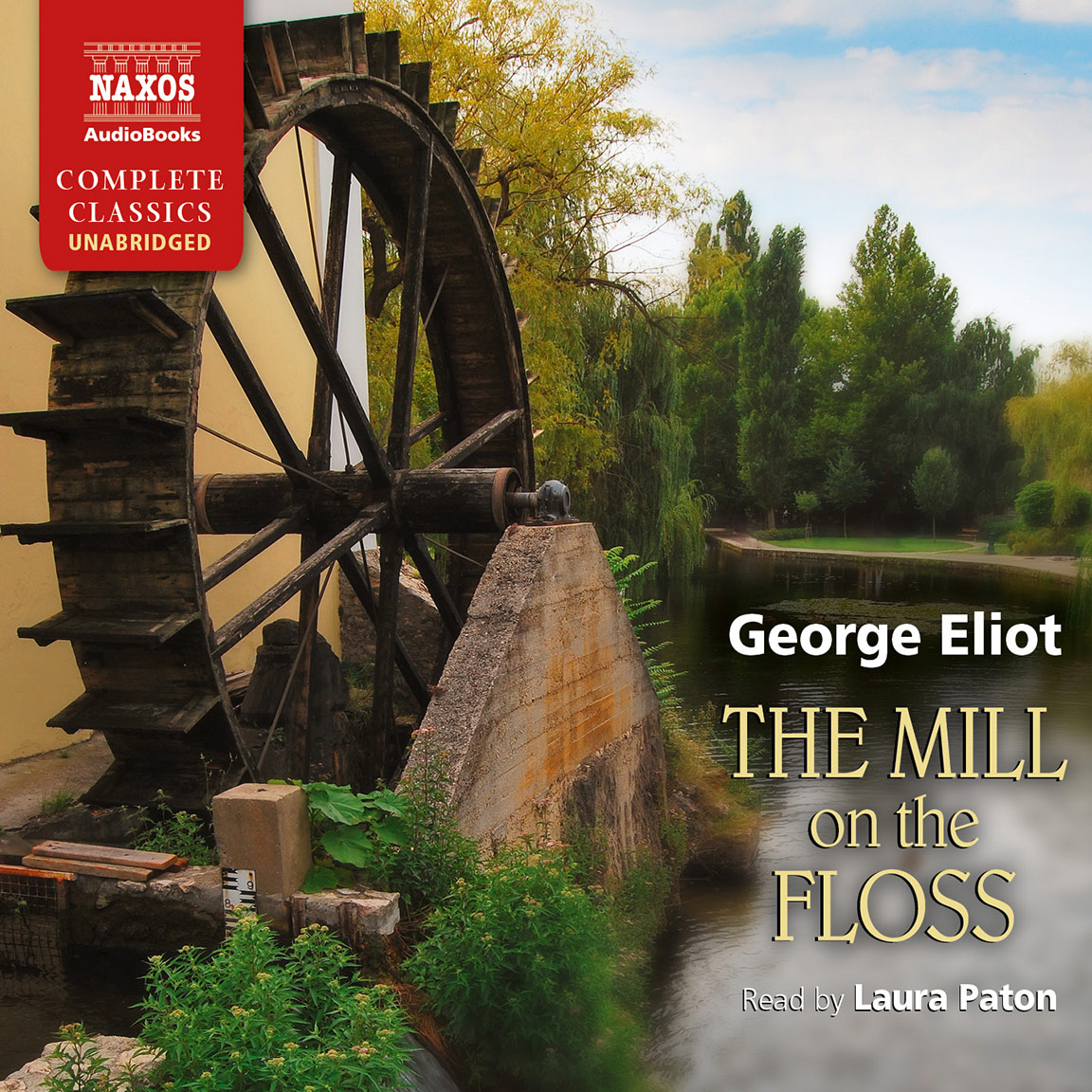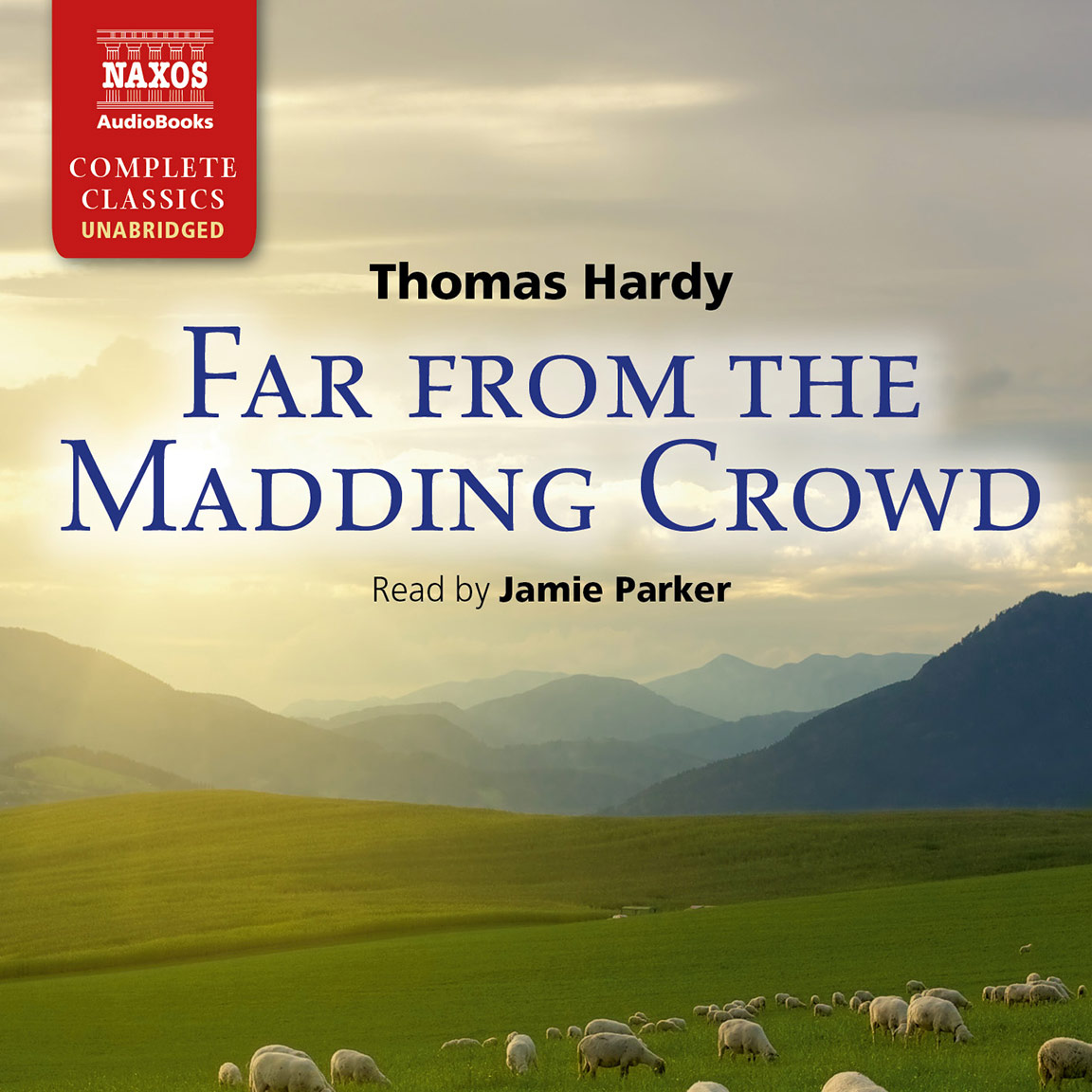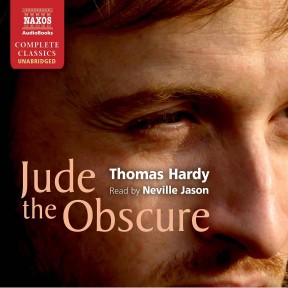
Audio Sample
Thomas Hardy
Jude the Obscure
Read by Neville Jason
unabridged
Sexually innocent Jude Fawley is trapped into marriage by the seductive Arabella Donn, but their union is an unhappy one and Arabella leaves him. Jude’s welcome freedom allows him to pursue his obsession with his pretty cousin Sue Bridehead, a brilliant, charismatic freethinker who would be his ideal soul mate if not for her aversion to physical love. When Jude and Sue decide to lead their lives outside marriage they bring down on themselves all the force of a repressive society. This fearless and outspoken story caused a furore on its publication and was Hardy’s last novel.
-
Running Time: 17 h 25 m
More product details
Digital ISBN: 978-1-84379-679-4 Cat. no.: NA0112 Download size: 255 MB BISAC: FIC004000 Released: May 2013 -
Listen to this title at Audible.com↗Buy on CD at Downpour.com↗Listen to this title at the Naxos Spoken Word Library↗
Due to copyright, this title is not currently available in your region.
You May Also Enjoy
Reviews
This is an absolute treat to listen to, superbly interpreted, and with each of the many characters having its own unique voice, this classic comes alive in the hands of a truly gifted narrator. Neville Jason trained at Royal Academy of Dramatic Art, where he was awarded the diction prize by Sir John Gielgud. He has been a member of the BBC Radio Drama Company, and may be heard in radio plays, documentaries and arts programs. Hardy’s rather prescient novel puts issues of class, marriage, sexuality and gender in the 19th century under a microscope. Not surprising that it caused a furore when it was published. For those who have read the book this is a ‘must listen’; for those new to the novel, it is a compelling performance and shouldn’t be missed.
Sue Rosenzweig, Sound Commentary
After disastrous first marriages, Jude Fawley and Sue Bridehead find love – which Sue is reluctant to tarnish by marriage, a decision for which society cruelly marginalises them. Through the doomed trajectory of their lives, Hardy sympathetically explores the fault lines in Victorian attitudes to marriage and in the couple’s vain attempts to sustain their ‘highest and purest love’.
Rachel Redford, The Oldie
Hardy’s most haunting novel follows Jude’s piteous loyalty to his enigmatic muse, Sue Bridehead. Narrator Neville Jason evokes Hardy’s sombre tone through his resonant voice and measured pace, eloquently moving the listener through the novel’s descriptive prose. The story takes place in Hardy’s Wessex country, among artisans and teachers. Jason captures the dialects of the region in his vocal characterisations. He is particularly effective in his emphatic performance of the continual bickering between Jude and his first wife, Arabella. Jason’s attention to the intonation of Hardy’s style compels the listener through this unsettling love story.
D.M.W., AudioFile
Booklet Notes
Why ‘the obscure’? The first published editions of the story appeared in serial form in Harpers Magazine, under the titles The Simpletons and The Hearts Insurgent. But these were bowdlerisations of Hardy’s original text, amended to suit the wide readership of a popular periodical, with sexual references omitted or blunted; the softer more romantic titles reflect this literary castration. When Hardy later re-worked the text in order to return it to its original state, he gave it a title that reflects the obscurity of Jude’s beginnings – his mysterious parentage, his humble background, his seemingly unremarkable life. But there is a measure of irony in the title; Hardy understood that no life, however obscure, is unremarkable, and he understood that the joys and sorrows of all living creatures are important. The story of a seeming ‘nobody’ is the story of Everyman.
That being said, this is the story of a particularly unfortunate Everyman, who suffers the world’s apparent withholding of its benefits and multiplication of its blows against him. Jude, an innocent, kindly, loving man, is submitted to trials and disappointments at every turn. He is thwarted in his wish to study, in his religious and scholastic ambitions, and in his desire for physical love and familial happiness.
That the book was met with extreme hostility in some quarters on its publication is not surprising. In the unfolding of the tragic story, neither the Church, the educational establishment nor society come out well. All stand indicted as enemies of progress and individual thought. Christminster, Hardy’s fictionalised Oxford, refuses entrance to Jude, despite his love of learning, because he lacks the required financial and social background; the Church condemns Jude and Sue’s union of true love but blesses their return to ill-matched partners; and society hounds to destruction those who refuse to live conventional lives.
If there is
a villain in
the story it
is society
Although Hardy was not writing a polemical work, he reveals clearly through his characters his opposition to the cruelly oppressive attitudes of Victorian society. He objects bitterly to the observance of the letter of the law rather than the spirit; as Jude says in objection to Sue’s return to Phillotson: ‘We are acting by the letter, and “the letter killeth!”’
Hardy was evidently aware that his attitudes were ahead of their time. Sue says: ‘When people of a later age look back upon the barbarous customs and superstitions of the times that we have the unhappiness to live in, what will they say?’ Jude complains, looking back on his life: ‘As for Sue and me when we were at our own best, long ago – when our minds were clear, and our love of truth fearless – the time was not ripe for us! Our ideas were fifty years too soon to be any good to us.’ Some readers today may feel, despite the advances in social attitudes, that Hardy’s estimate of fifty years was too optimistic.
And yet it cannot be denied that huge changes have taken place in the last hundred years. Attitudes to sex, to education, and to the role of women have altered vastly except within the narrowest, most restrictive communities: society today accepts pre-marital or non-marital sex; the education of women has long been taken for granted and women now have the opportunity to lead independent lives; and gender equality, though perhaps not yet perfectly achieved, is an accepted goal. Although Oxford and Cambridge may still be accused of elitism, universities throughout the nation are filled with young people from every kind of background, and poverty or class need no longer be a barrier to academic achievement.
But the tragedy of Jude the Obscure is more particular than general. Divorce laws had already been passed by the time the book was written, and although divorce was not universally accepted, it was possible to escape a bad marriage. Indeed, both Jude and Sue might have benefited from their legal opportunity to do so. But this does not take into account the personal and circumstantial way in which fate is against them.
Jude and Sue may be soul mates, but they are not suited to be bed mates. Sue is not completely asexual, but on the scale of sexual desire she is at the opposite end from Jude. She would prefer to live a platonic life, and only gives in physically to Jude when she comes to love him and to pity his predicament. Arabella is opposite to Sue in character: where Sue is sensitive, brilliant and self-educated, Arabella is coarse, carnal and self-centred. She uses her sexual magnetism to manipulate men to her advantage. However, neither is to blame for the eventual tragedy as both act according to their natures.
Jude reflects:
Strange that his first aspiration – towards academical proficiency – had been checked by a woman, and that his second aspiration – towards apostleship – had also been checked by a woman. ‘Is it’ he said, ‘that the women are to blame; or is it the artificial system of things, under which the normal sex-impulses are turned into devilish domestic gins and springes to noose and hold back those who want to progress?’
If there is a villain in the story it is society, with its hypocrisy, entrenched values and insistence on a literal interpretation of the law. Sue, the brilliant philosophical freethinker and atheist is eventually pressured into conforming to society’s rules and accepting its religious beliefs. Jude’s loss of faith and his acceptance of Sue’s attitude to marriage are punished by lack of employment, poverty, suffering and death. In allowing Sue her freedom, Phillotson is condemned by society for his compassion, and he is only forgiven once he agrees to re-instate a conventional relationship:
To indulge one’s instinctive and uncontrolled sense of justice and right, was not, he had found, permitted in an old civilization like ours. It was necessary to act under an acquired and cultivated sense of the same, if you wished to enjoy an average share of comfort and honour, and to let crude loving kindness take care of itself.
The vituperative reviews in the press on the book’s publication, and the reaction of those such as the Bishop who threw the book into the fire, resulted in Hardy’s decision to write no more novels. Like his characters, their author had been duly called to order and punished by society for his honesty, independence, and compassion.
Notes by Neville Jason

